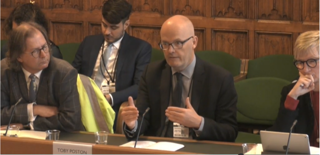The future of motoring taxation remains unclear, but the need for change is mounting as increasing electric vehicle (EV) registrations risk driving down tax revenues for the Government.
In October, plug-in vehicle uptake remained positive, with battery electric vehicles (BEVs) equalling their September market share of 15.2% with 16,155 units, while plug-in hybrid vehicles (PHEVs) grew to 7.9% or 8,382 units, according to the Society of Motor Manufacturers and Traders (SMMT).
New plug-in vehicle uptake rates have accelerated so rapidly that more will join Britain’s roads in 2021 than during the whole of the last decade.
The RAC estimates that there are more than 330,000 zero-emission battery electric vehicles (BEVs) on the UK’s roads – with more than 125,000 registered so far in 2021 alone – along with 320,000 plug-in hybrids and 700,000-plus conventional hybrids.
With the sale of new internal combustion engine (ICE) cars and vans ending from 2030 and hybrids from 2035, and with the Government announcing this week only zero-emission new HGVs will be able to be sold from 2040, the number of plug-in vehicle registrations is estimated to rise rapidly to around three million by 2025, 10 million by 2030 and 25 million by 2035.
KPMG’s Mobility 2030 team expects the already-growing sale of zero-emission cars and vans to reach 98% of sales in 2031 and 27% of the parc by 2030.
DWINDLING TAX TAKE FROM EVs
It leaves the Treasury urgently needing a plan to plug a potential £40 billion shortfall from road taxes, including fuel duty. At £28.4bn in 2019-2020 (excluding VAT), tax revenues from fuel duty account for a significant 2% of GDP (gross domestic product), while vehicle excise duty (VED) receipts were estimated to account for £6.5bn.
The impact of electrification can be seen in the comparable costs, according to new research from the Tony Blair Institute for Global Change. It suggests that the cost of petrol or diesel, fuel duty and VED is about £1,100 a year for the average petrol or diesel car, while for EVs it is only £320 – a reduction of 71%.
Irrespective of the pace of EV uptake in the 2020s, if the UK is to hit the Government’s EV deployment targets, the Exchequer will lose almost £260bn in revenue by 2040, the institute says.
With each £5.5bn equating to a penny on income tax, compensating for this loss would require the basic rate of income tax to rise by around6p in the pound – or 2p by the end of the next Parliament – a 4.5 percentage point increase in VAT or huge rises in other consumer taxes.
The question is how to plug this shortfall. The institute’s Avoiding Gridlock Britain report suggests taxing the charging of EVs could damage adoption rates, prove regressive and be difficult to implement.
Increasing VED for pure electric vehicles and for hybrid vehicles would also, in the short term, significantly disincentivise the transition to zero emission vehicles, it says.
The Treasury could also look to recoup lost funding through other avenues such as VAT or income tax. However, this would contradict the ‘user pays principle’ by re-distributing the tax for the funding of roads away from road users to the general population who may not have access to vehicles or derive additional benefit.
The report, instead, suggests that the Government could support the expansion of the current set of tolls, congestion and air quality charges and/or consider implementing a ‘road pricing policy’ in which users are charged according to the ‘user pays principle’ – for the use of the vehicle rather than its ownership (see panel).
It says this would not only provide the Government with revenues for infrastructure spending, but also address other objectives such as optimising the capacity of the finite road asset, managing congestion, or improving air quality.
The Government is taking notice. Behind the scenes, ministers are discussing road pricing options and how to introduce a policy without it being a vote loser.
The Transport Select Committee is also getting involved. During a session at the House of Commons, British Vehicle Rental and Leasing Association (BVRLA) director of corporate affairs Toby Poston told the committee: “Any new road pricing scheme must be easy to pay and have the simply objective of providing a revenue-neutral replacement for fuel duty and VED.
“It should be based on a simple distance-driven model that considers vehicle weight, emissions and use case with discounts given to shared mobility solutions – such as car clubs, rental cars, buses and taxis – to incentive more sustainable travel choices.”
Fleet decision-makers attending a recent Fleet News roundtable also called for a simple solution which replaced, rather than added to, existing taxation. Steve Winter, British Gas head of fleet, said: “It can’t be an administrative burden or an additional tax burden. We just need a formula we can understand and a long-sighted strategy view.”
CONGESTION RISK FROM DOING NOTHING
A failure to act will dramatically increase congestion. Cheaper driving as fuel duty has remained frozen and fuel efficiency has improved is already having that effect, according to the Tony Blair Institute report.
This year’s decision to retain the fuel duty freeze could result in the equivalent of another 400,000 cars on the road by the end of this Parliament, it claims.
It estimates that a 70% drop in fuel cost is expected to see a 7-14% increase in vehicle miles in the short run with the effect rising closer to 40% in the long.
Consistent with this, the Department for Transport (DfT) forecasts EVs will result in a rise in traffic of 30% and an increase in the proportion of vehicle miles driven in congested conditions up by five percentage points to 12%.
Without action, this increase in congestion could push up the costs of congestion to the UK from £59.5bn to £121.54bn by 2040 and increase the amount of time the average driver wastes in traffic by nine hours, to 32 hours a year.
The report suggests there will also be an acceleration in the current trend, driven by app-based map services, to move traffic away from main roads and on to residential streets not designed to accommodate high volumes of traffic.
Some form of road pricing to plug an anticipated loss in vehicle-related tax revenues is supported by more than half (53%) of motorists, recent research from Venson Automotive Solutions suggests.
In an earlier Fleet News poll, almost half (45%) of the respondents said they were in favour of an alternative pay-as-you-go taxation scheme based on miles driven. More than a third (36%) said they were not.
The Venson survey found that more than one-in-five respondents (22%) favoured a nationwide road pricing ‘pay-as-drive’ scheme, with a further 31% saying they would support a ‘road miles’ system, for example, where the first 4,000 miles each year were free before paying a set cost per mile driven.
More than one-third (38%) of respondents, meanwhile, preferred the introduction of a new electric vehicle (EV) tax, which could see drivers of heavier vehicles paying higher taxes.
Venson client management director Simon Staton says there is pressure on the Chancellor to outline a 10-year trajectory to establish a financially viable means to achieving zero emissions.
“Our survey findings confirm an understanding by the public that some sort of EV tax or related user charges will be necessary, which should offer Government assurances that people are mentally preparing to make the switch,” he added.
“A favourable tax regime, together with a raft of new models and significant growth in the charging network, will play a vital part in accelerating our journey along the road to zero.”
In evidence submitted to MPs on the Transport Committee, which is conducting an inquiry into road pricing (it has yet to publish its findings), Greener Transport Solutions says that, to coincide with the ban on sales of new petrol and diesel cars, Government should announce that fuel duty and VED will be scrapped from 2030 and replaced by a mandatory road user charge based on distance and time.
The charge would apply to all vehicles. The distance element would pay for road infrastructure and the time charge would cover congestion and pollution.
The not-for-profit organisation, which is dedicated to the decarbonisation of transport, proposes that, ahead of it becoming mandatory in 2030, road users would be encouraged to opt-in.
It suggests a distance charge of 2p per km for cars, and an average of 3p per km for vans and 6p per km for lorries. The charge for lorries and vans would increase in line with weight per axle and wear and tear to the road surface.
For cars a flat rate charge of 2p per km is recommended as the weight of a car is marginal to the damage inflicted on road surfaces.
MOTORING TAX SET INDEPENDENTLY
Greener Transport Solutions wants the Government to set up a commission with cross-party representation to agree a way forward.
It would consider delegating authority to an independent body such as the Office of Road and Rail (ORR) in consultation with the Office of Budget Responsibility (OBR) to set motoring taxation.
It says this would build cross party support and politically de-risk the introduction of road user charging.
Greener Transport Solutions argues that in the same way the Government asks the Bank of England to meet inflation targets it should ask the ORR/OBR to establish the right level and mix of motoring taxation to meet targets in public finances, road infrastructure spend and set targets for congestion and air quality.
It concludes: “The switch from ICEs to EVs provides a window of opportunity for an honest conversation about road taxation and to develop a politically deliverable national road pricing scheme.”
Andy Eastlake, CEO of the Zemo Partnership exmaines the case for road pricing, click here.























Login to comment
Comments
No comments have been made yet.